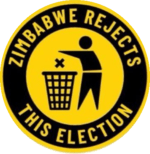The Disconnect: Chamisa and the Diaspora's Role in Zimbabwean Politics
Tonderai Godknows Mapfumo
In the complex landscape of Zimbabwean politics, the relationship between opposition leader Nelson Chamisa and the diaspora has become increasingly fraught. While the diaspora community plays a crucial role in supporting political movements through financial contributions, there is a growing perception that Chamisa is resistant to their involvement in shaping policies that directly affect them. This disconnect raises significant questions about the CCC's commitment to inclusivity and representation.
The Diaspora: A Vital Resource
The Zimbabwean diaspora has long been a vital asset for the opposition, providing financial support and mobilizing resources for political campaigns. Many members of the diaspora are deeply invested in the future of Zimbabwe, often expressing a desire to contribute to meaningful change from abroad. However, this support appears to be welcomed only when it comes to fundraising efforts, rather than as a voice in policy formulation.
Chamisa’s administration often solicits financial assistance from the diaspora, leveraging their resources to bolster the CCC’s initiatives. Yet, when it comes to crafting policies that address the needs and concerns of Zimbabweans living abroad, the approach has been markedly exclusionary. This dynamic raises important questions about the value placed on the perspectives of diasporans, who possess unique insights into the challenges faced by Zimbabweans outside the country.
Exclusion from Policy Crafting
Critics have pointed out that Chamisa’s leadership often sidelines the diaspora in crucial discussions about policies affecting them. Instead of engaging with diasporans to understand their needs and aspirations, policy decisions appear to be made in isolation, with little input from those who are most affected. This top-down approach not only undermines the democratic ideals the CCC claims to uphold but also alienates a key constituency that could help drive reform.
For instance, policies regarding remittances, citizenship rights, and political participation are vital to the diaspora community. However, the lack of consultation and collaboration in these areas suggests a reluctance to genuinely integrate their voices into the political process. The perception that Chamisa is more interested in their financial contributions than their insights is a significant point of contention and breeds disillusionment among potential supporters.
A Call for Genuine Engagement
For Chamisa to build a truly representative movement, it is imperative that he re-evaluates his approach to the diaspora. Engaging diasporans in meaningful discussions about policy formulation is not only a matter of fairness; it is crucial for fostering a sense of ownership and investment in the political process. The diaspora's experiences and perspectives can provide valuable insights that enrich policy-making and ensure that the needs of all Zimbabweans are considered.By actively involving the diaspora in crafting policies, Chamisa can transform the relationship from one of mere fundraising to genuine partnership. This shift would not only enhance the credibility of the CCC but also signal a commitment to inclusivity and representation.
Conclusion
The relationship between Nelson Chamisa and the Zimbabwean diaspora is at a critical juncture. While the diaspora’s financial support is undeniably important for the CCC, their exclusion from meaningful policy discussions risks alienating a vital constituency. For Chamisa to lead effectively and garner the support needed for meaningful change, he must embrace a more inclusive approach that values the contributions and insights of all Zimbabweans, regardless of their location. Only through genuine engagement can the CCC hope to unite the nation and foster a truly democratic political landscape.
